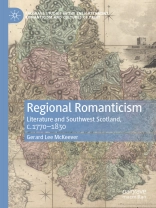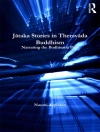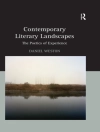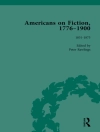This book tracks the rise of modern cultural regionalism across the turn of the nineteenth century. Attending specifically to literature and literary culture, it examines how a particular region—southwest Scotland—was reimagined between 1770 and 1830. Regionalisms were a vital, emergent force in this period, in dialogue with the local, the national, the transnational and the imperial. In the case of southwest Scotland, the literary inscription of the region was generated in a blossoming periodical press; by visitors like Dorothy Wordsworth and John Keats; by resident icon Robert Burns; by homesick emigrants such as Allan Cunningham; by adventurers, colonialists and pirates looking back from within and beyond the formal limits of empire; by the unprecedented success of Walter Scott; and by many others navigating the opportunities presented by rapidly evolving economic, environmental and infrastructural conditions. Regional Romanticism illuminates a neglected aspect of anglophone literary history, acknowledging regions and regionalism as a primary frame of reference in late eighteenth and early nineteenth-century culture.
Tabla de materias
Chapter 1. Introduction: Regional Romanticism.- Chapter 2. Travel Writing’s Debatable Land.- Chapter 3. Of Poets, Mermaids and Brownies.- Chapter 4. Regional Periodicals.- Chapter 5. Transatlantic Romance and the Curse of Home.- Chapter 6. Subversive Antiquarianism.- Chapter 7. Furth of the Solway.
Sobre el autor
Gerard Lee Mc Keever is Lecturer in Modern Scottish Literature at the University of Edinburgh, UK. He is the author of Dialectics of Improvement: Scottish Romanticism, 1786–1831 (2020), the winner of the BARS First Book Prize 2021.












